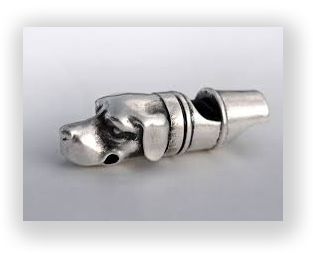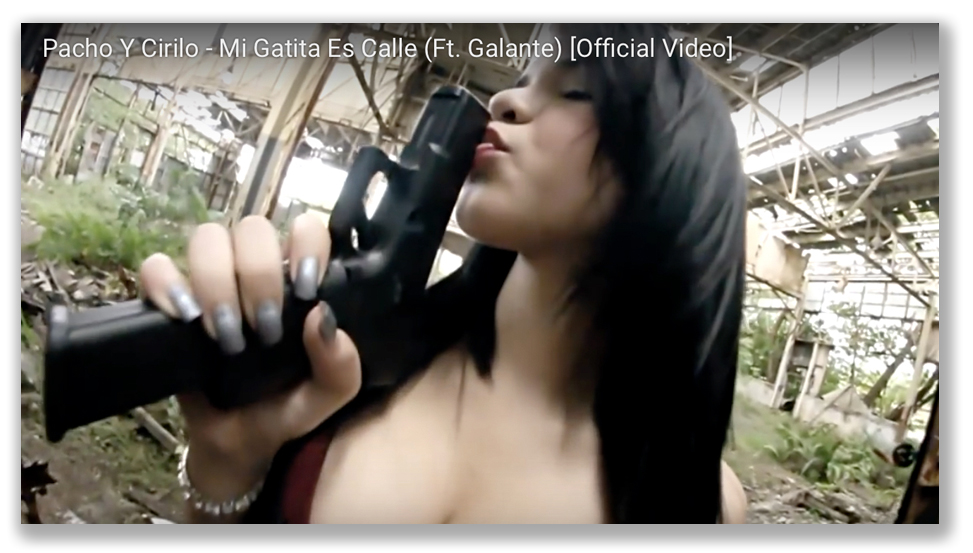We post news and comment on federal criminal justice issues, focused primarily on trial and post-conviction matters, legislative initiatives, and sentencing issues.

‘YOUR HONOR, WE RECOMMEND A MINIMAL SENTENCE FOR THIS AWFUL SCUMBAG’
 The Government is well known for its dog whistles, silent signals telling the Court that while it says it recommends some sentence agreed to in a plea agreement, it’s really dumping all sorts of dirt on a defendant intended to goad the judge into sentencing well above the agreed-on term.
The Government is well known for its dog whistles, silent signals telling the Court that while it says it recommends some sentence agreed to in a plea agreement, it’s really dumping all sorts of dirt on a defendant intended to goad the judge into sentencing well above the agreed-on term.
Last week, two Circuits said the Government had gone too far.
Gerardo Farias-Contreras pled guilty to meth distribution in exchange for the government’s promise to recommend the bottom of a 151-188 month sentencing range.
In its sentencing memo, the government did what it promised, recommending a 151-month term. But the devil’s in the details. In the same memo, it argued that Gerry had been “convicted of an unquestionably serious offense” and that “drug trafficking is nothing less than pumping pure poison into our community.” Its memo quoted drug overdose death statistics, a book about the families of living drug addicts, and a “decades-old 5th Circuit decision that suggests drug dealing is a ‘grave offense’ worse than murder.” Claiming that Gery had “the top… criminal culpability in this case” and had been dealing for 30 years, the memo asserted that “ultimately, a significant sentence was warranted.”
At sentencing, the government said it stood by its recommendation, but that the recommendation had been the subject of much discussion in its office because Gerry “is at the top of the food chain in terms of criminal culpability… we have this individual, multiple years, multiple pounds, a massive amount of drugs that he is responsible for.”
The Court heard the government’s dog whistle and sentenced Joe to 188 months. Gerry didn’t object at sentencing like he should have, but on appeal he argued the government had breached its plea agreement.
 Last week, the 9th Circuit reluctantly upheld Gerry’s sentence. It noted that while the government promised to recommend a low-end sentence, “it spent five pages in its sentencing memorandum arguing for a ‘significant sentence’ and ‘made several inflammatory arguments, including in its sentencing memorandum… What’s more, the Circuit said, “the government seemed to suggest that some prosecutors in its office did not agree with the low-end recommendation” in light of Gerry being “at the top of the food chain in terms of criminal culpability…” thereby “winking at the district court to impliedly request a different outcome.”
Last week, the 9th Circuit reluctantly upheld Gerry’s sentence. It noted that while the government promised to recommend a low-end sentence, “it spent five pages in its sentencing memorandum arguing for a ‘significant sentence’ and ‘made several inflammatory arguments, including in its sentencing memorandum… What’s more, the Circuit said, “the government seemed to suggest that some prosecutors in its office did not agree with the low-end recommendation” in light of Gerry being “at the top of the food chain in terms of criminal culpability…” thereby “winking at the district court to impliedly request a different outcome.”
The 9th said that the government is allowed to counter a defendant’s argument for a lower sentence, but that its “response must be tethered to its obligations under the plea agreement, even when responding to the defendant’s specific request for a downward departure or to the court’s questions… The government must comply with the letter and spirit of the plea agreement… This is a fact-specific inquiry based on contract principles. Courts should look at the totality of circumstances and consider… the sequencing, severity, and purpose of the statements.”
Because Gerry had not objected to the government’s dog whistle at sentencing, the error was not “plain” under F.R.Crim.P. 52, so the Circuit upheld the sentence.
Meanwhile, in the 1st Circuit, Yavier Mojica-Ramos made a deal on his 18 USC § 922(o) machinegun charge pursuant to which the government would agree to recommend a within-Guidelines sentence. The government filed a sentencing memorandum requesting an upper-end guidelines sentence of 46 months, but attached about 250 photos and a video taken from Yavier’s cellphone showing a lot of guns and drugs, with the video showing “an individual resembling Yavier… recklessly brandishing an assault-style rifle by repeatedly pointing the barrel at the individual who is recording the video.”
The government said the photos and video “are additional evidence that Yavier has an interest in… other criminal behavior beyond the machinegun count charged.” Relying on what it called “alarming content,” the government urged the court to consider the cellphone content as “additional information” on Yavier’s criminal activity. The government fumed that “[t]he danger to the community and the serious nature of the offense should be considered exceptional in this case” and highlighted the “high rates of gun violence in Puerto Rico, the purported deterrent effect of lengthy sentences for gun offenders, and the particularly strong need to protect the public from Yavier.”
Yavier demanded that the government honor its obligations under the plea agreement, but the district court denied the motion, hammering Yavier with a 72-month upward-variant sentence.
Last week, the 1st Circuit reversed Yavier’s sentence. The Circuit rejected the government’s excuse that its “duty of candor” required that it provide the cellphone contents to the court, holding that such a duty
does not allow it to goad the court into relying on uncharged conduct without providing any corroborating evidence that Yavier was involved in the alleged firearm and drug crimes depicted in the cellphone content. Aside from stating that the images were extracted from Yavier’s phone, the government did not attempt to demonstrate by a preponderance of evidence that Yavier was involved in the purported crimes… In fact, the government concedes that it did ‘not submit evidence to support’ finding that ‘any [of the] substances depicted in the photos’ were actually illegal drugs, ‘any guns were used in connection with drug trafficking or any other crimes,’ or that Yavier ‘physically possessed’ any of the pictured drugs or guns.
 The Circuit concluded that “the government’s insistence that the court consider unproven conduct—seemingly under the guise of identifying public safety and deterrence issues—further signaled to the court that the prosecutor did not genuinely believe the recommended guidelines sentence was appropriate. Indeed, in so doing, the government suggested a basis for the court to vary upward while neglecting our sentencing caselaw’s limitations on considering uncharged conduct.”
The Circuit concluded that “the government’s insistence that the court consider unproven conduct—seemingly under the guise of identifying public safety and deterrence issues—further signaled to the court that the prosecutor did not genuinely believe the recommended guidelines sentence was appropriate. Indeed, in so doing, the government suggested a basis for the court to vary upward while neglecting our sentencing caselaw’s limitations on considering uncharged conduct.”
By effectively urging the court to impose a longer sentence “within a context suggesting that the [government] had in mind something greater than” the within-guidelines sentence the parties agreed upon,” the 1st ruled, “the prosecutor wrongfully undermined the plea agreement.”
United States v. Farias-Contreras, Case No. 21-30055, 2024 U.S.App. LEXIS 13231 (9th Cir. June 3, 2024)
United States v. Mojica-Ramos, Case No. 22-1204, 2024 U.S.App LEXIS 13794 (1st Cir. June 6, 2024)
– Thomas L. Root


